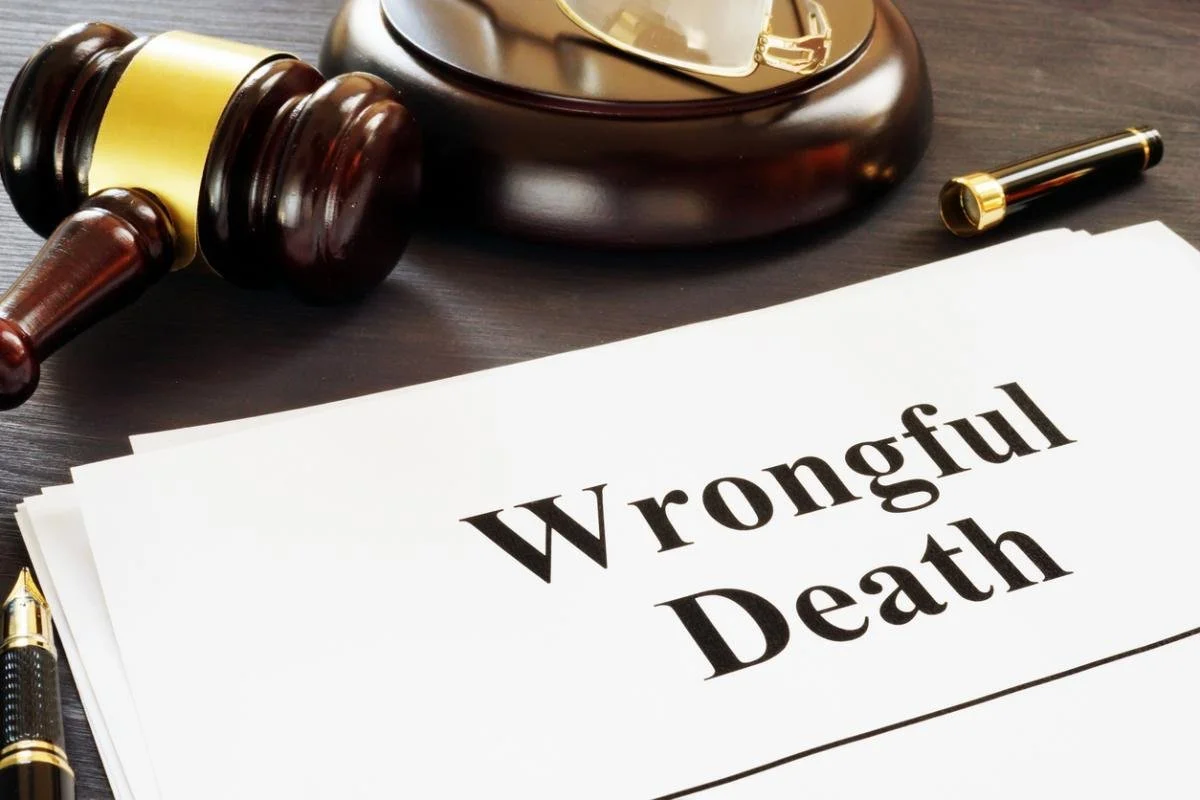The Estate of David Loree v. TNT Crane & Rigging, Inc.
/The wrongful death lawsuit filed by the family of David Loree against TNT Crane & Rigging, Inc. became one of the most striking examples of how a jury can respond when a company’s safety failures lead to devastating consequences.
Case: The Estate of David Loree v. TNT Crane & Rigging, Inc.
Court: District Court of Harris County, Texas
Case No.: 021-68047, followed by Appeal No. 14-25-00776-CV
The Plaintiff, Estate of David Loree, Represented by Loree's Widow:
The plaintiff is represented by David Loree’s widow, Milena Loree, along with their children Zackary, Cody, and Mary. The family brought the wrongful death lawsuit individually and on behalf of the estate of the late David Loree after Loree lost his life in a catastrophic incident involving heavy construction equipment operated by TNT Crane & Rigging. The family alleged that TNT’s systemic disregard for safety protocols directly caused his death.
The case centered on claims of gross negligence—asserting that TNT Crane & Rigging failed to maintain a safe work environment, properly inspect and operate its cranes, and adequately train personnel to prevent foreseeable accidents.
The Defendant: TNT Crane & Rigging, Inc.
TNT Crane & Rigging, Inc. is a nationwide crane and heavy lifting services operation based out of Texas. According to the original court documents, TNT's initial response to the plaintiff's claims was to deny liability for the incident, indicating that the company's actions exhibited reasonable care and compliance with safety standards. During the early stages of litigation, the defendant argued that there were other factors (including the decedent's actions) that may have contributed. In response, the plaintiffs' counsel provided the court with extensive evidence of repeated safety lapses, warnings the company disregarded, and corporate practices that clearly prioritized productivity rather than safety.
From Trial to Settlement: A History of the Wrongful Death Case
After almost four weeks of trial, the jury found the company liable in the wrongful death of David Loree. The jury found the company's negligence egregious and warranting damages (both compensatory and punitive). The jury awarded the Loree Estate (plaintiff) with $640 million, including $480 million in punitive damages, which is a staggering figure meant to punish and deter similar conduct.
The jury’s finding of gross negligence was particularly significant. The jury's finding required the higher “clear and convincing” standard of proof that demonstrated that the defendant's actions reflected a conscious disregard for the safety of workers. Equally important, jurors rejected the defense’s attempt to assign blame to Mr. Loree.
In September 2025, both parties filed a joint motion to abate the appeal after reaching a settlement agreement. The Court of Appeals granted the motion and later, on October 30, 2025, issued an order vacating the trial court’s judgment and remanding the case for entry of judgment consistent with the settlement. The appellate order did not alter the jury’s findings on negligence—it simply reflected the parties’ agreement to finalize the matter privately.
The Main Question Being Considered: Corporate Negligence and Accountability
At its core, The Estate of David Loree v. TNT Crane & Rigging, Inc. asked whether a major industrial employer could be held fully accountable for systemic safety failures that result in loss of life. The jury’s verdict answered that question decisively—yes, when gross negligence is proven, corporations can and should be held responsible.
While the settlement ultimately resolved the case, the message resonated beyond the courtroom: strong corporate safety programs are not optional. They are essential to protecting workers’ lives.
Why Does This Case Matter to California Workers?
Although the case originated in Texas, its lessons are universal. Workers in California (especially those in high-risk industries such as construction, transportation, and manufacturing) face similar dangers when employers cut corners on safety.
California law, through agencies such as Cal/OSHA and the Labor Code, provides powerful protections for employees and their families. However, corporate negligence still leads to preventable deaths and injuries each year. This case highlights how vigilant legal action can expose systemic failures, drive industry reform, and bring a measure of justice to grieving families.
FAQ: The Estate of David Loree v. TNT Crane & Rigging, Inc.
Q: What laws or legal principles were central to the Loree case?
A: The Loree v. TNT lawsuit centered on wrongful death and gross negligence claims. The jury applied the “clear and convincing evidence” standard required to award punitive damages; mirroring the heightened standards for proving egregious misconduct in California's civil lawsuits.
Q: What Are Punitive Damages?
A: Punitive awards are intended to punish particularly reckless or malicious conduct.
Q: Is it significant when punitive damages are awarded in a wrongful death case?
A: When a jury awards punitive damages in a wrongful death case, it indicates that they felt the details of the case warranted a more excessive deterrent; in addition to ordinary compensation.
If you’ve lost a loved one due to corporate negligence or unsafe workplace conditions, the compassionate wrongful death attorneys at Blumenthal Nordrehaug Bhowmik DeBlouw LLP can help you seek justice at offices in Los Angeles, San Diego, San Francisco, Sacramento, Riverside, and Chicago. Contact our office to discuss your situation, and learn how to file a wrongful death lawsuit today.




